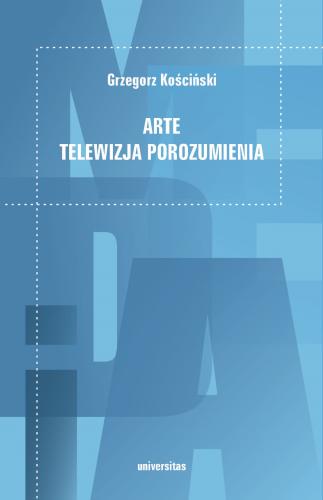ARTE – AGREEMENT TELEVISION. The phenomenon of public television as a tool for building understanding between nations and supporting the process of European integration, on the example of the French-German cultural television ARTE
Keywords:
Arte, public television, agreement, European integration, cultural televisionSynopsis
Title of this Ph.D. thesis: The phenomenon of public television as an instrument for building understanding between nations and supporting of European integration process (case study on the example of French-German television ARTE)”. ARTE is a public TV channel, established in 1991 from the political will of the leaders of two nations, namely president of France Francois Mitterrand and German Chancellor Helmut Kohl. Both were guided by the idea of using the media in the process of building up reconciliation between France and Germany and media support for the process of creating a new, more integrated Europe. Culture, which for centuries had been seen in mutual relations as a source of conflict and used for propaganda, also revealed its potential as a bridge for mutual understanding between nations and at the same time the main program leitmotiv of the ARTE. ARTE has been presented as a case study as, for the time being, it constitutes a unique example in the audiovisual landscape of Europe. As it was referred to by Ms. Veronique Cayla, director of ARTE France, in April 2019:
„ARTE is a political creation, very original, European TV station which does not have a counterpart in the world, it is multilanguage, cultural and carrying out the mission that exceeds it: Europe”. The main goal of research undertaken is the scientific analysis of those components, which led that ARTE become an “instrument of building up understanding between nations”. In-depth analysis has been done on the issue of the station’s strategy, program formula and thematic content, management method, technological progress and specific legal and organizational setting of ARTE based on french-german „bitonal model”. The research focused on the description of ARTE’s activities, and the main research method was „case study”, which was complemented by other methods. Author relied also on the method of content analysis focused on the analysis of the tv programming schedule. The main hypothesis which was intend to demonstrate in a doctoral dissertation was that the following factors contribute to strengthening the operative efficiency of the European cultural TV channel ARTE and guarantee its stable development: political will of France’s and Germany’s leaders, adaptation of the regulatory and organizational frameworks to the specifications of a binational TV channel; functioning based on a stable budget, and effective use of modern audiovisual technologies.



